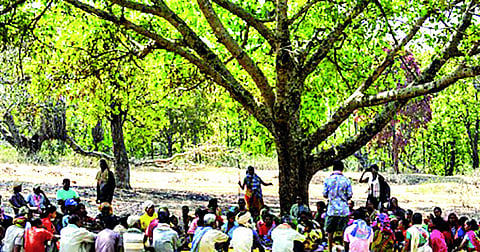
Kurukshetra- Once, P. Chidambaram, a unique politician with intellectual reflection, wrote in the Indian Express on February 4, 2024, that political laws and political rules are different things for politicians, while laymen use them in one sense. 2024 is the year of elections for the world because the two biggest democratic nations, India and the USA, have been involved in elections. India’s general election was in June 2024, and once again, the BJP is in power. In the context of Haryana, it might be possible that the Assembly election will commence in October 2024. In India, the government's powers and functions are divided among the Union Government, state governments, and local governments (Panchayats and Municipalities). However, Panchayats and Municipalities were inserted in 1993 by the constitution’s 73rd and 74th amendments.
Haryana has a total of 91 municipalities (11 municipal corporations, 22 municipal councils, and 58 municipal committees) and 6234 village panchayats, which have been providing people with self-government and self-governance.
Panchayats are the first unit of the Indian democratic system and the soul of Indian society. On July 2, CM Nayab Singh Saini announced some schemes for the Gram Panchayat representatives at a state-level program in Kurukshetra. He has been trying to strengthen the hands of the Sarpanchs of villages.
He announced the following facilities to empower panchayats:
Now the limit of Sarpanchs to work at their own discretion will be 21 lakhs; earlier it was 5 lakhs. That is, the Sarpanch will now be able to get work done up to Rs 21 lakh without a tender.
If the Sarpanch gives a separate estimate of Mitti (soil) Bharat for any work, then that will also be paid by the government.
After uploading the resolution by the Sarpanch on the Haryana Engineering Works (HEW) portal, the Junior Engineer (JE) will now be obliged to upload the estimate in 10 days. This would help speed up work in villages.
Sarpanchs will get TA/DA at the rate of Rs. 16 per KM for going out from the village for administrative work. This would motivate the Sarpanchs to encourage the government to do more work for the village's development.
These days, Sarpanchs face various kinds of cases from the villagers; sometimes, particularly Dalit Sarpanchs, cannot fight the cases properly in court due to a lack of funds. But now, at the district or sub-division level, the fee for pleading in court will be Rs. 5,500 per case instead of Rs. 1100, and for the High Court, it will be Rs. 5,500 to Rs. 33,000 per case.
The most important announcement has been that the chair of the Sarpanch will be with the DC/SSP when the state-level program is held in the village. This will provide dignity to the Sarpanchs, and officers will listen to them more seriously.
Panchayats will now be able to buy laptops and printers, which will make them more hi-tech, and 3000 computer operators have been appointed for Gram Panchayats. The stamp duty and electricity bills will come directly into the account of the panchayat.
If the Gram Panchayat is not able to solve the problem of drinking water in the village, then on the resolution of the Panchayat, the work will be done by the Public Health Department.
Gram Panchayats will be able to spend up to 30 thousand rupees from the Panchayat Fund for the national festival or special event.
The limit of expenditure on publicity, flags, or sweets for the activities of the national festival for the panchayat has been increased from 500 to 5000. (The Hindu Bureau: July 3, 2024)
Sukhbir Singh, a prominent member of the Indian National Lok Dal (INLD), has voiced his concerns over the Haryana government's treatment of Numberdars in villages. Singh, who is expected to contest the upcoming Assembly election from Thanesher, criticized the current administration for overlooking the contributions and importance of Numberdars.
In a recent conversation, Singh emphasized that if the INLD were to come to power, they would ensure that Numberdars receive the same respect and honor as Sarpanchs. "Numberdars have long been the pride of our villages, and it is high time they receive the recognition they deserve," he stated.
Singh, an active political figure for over a decade, also shed light on the challenges faced by Dalit Sarpanchs. He pointed out that Sarpanchs from the Dalit community often encounter various forms of discrimination from upper-caste electors and government officers. According to Singh, many Dalit Sarpanchs possess only de jure powers, with actual authority being exercised by dominant caste members.
Highlighting the need for systemic change, Singh suggested that the government should implement special provisions to empower Dalit Sarpanchs. These measures should include training by experts in rural development and financial assistance for Dalit candidates contesting elections. Singh's remarks underscore the ongoing issues of caste discrimination and the need for inclusive governance in Haryana's rural areas.
-The Author Dr. Krishan Kumar is a scholar based in Haryana specializing in Dalits and Marginalized Studies and founder of International Ambedkarites’ Network.
You can also join our WhatsApp group to get premium and selected news of The Mooknayak on WhatsApp. Click here to join the WhatsApp group.